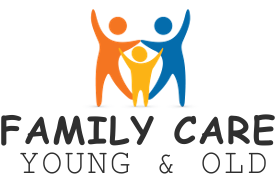Worst Habits may be robbing you of the happiness you deserve. You’re probably already aware that unhealthy behaviors can result in disease. If you eat cheesy sausage eggs for breakfast and pizza for dinner every night, your cholesterol level will increase.
Your weight will increase, and you may even get heart disease. Some terrible behaviors can hurt your mental health, just like bad habits can harm your physical health. These behaviors may put you at greater risk of depression or increase your level of stress and anxiety.

These seven Worst Habits could be harming your mental well-being:
Perfectionism:
It’s an excellent habit to strive for higher levels of performance. When pursuing an important objective, it is critical to put out your best effort. Trying to be flawless all the time can hurt your chances of success, even if you’re doing something well.
Psychiatrists use the term “positive or negative” to define perfectionism. As a perfectionist, you never offer anything less than your absolute best work if you have a positive attitude toward perfection.
Sitting in a wrong position:
Research published in the journal Behavior Therapy and Psychiatry found that simply sitting up straight can minimize the symptoms of depression.
Guilt:
Guilt serves a purpose in society; people who feel sorry for their actions are less likely to commit the same crime again. Your feelings of guilt may have evolved as you grew older. For instance, the embarrassment associated with leaving your family for work may make you feel guilty about quitting your home job. These types of Worst Habits may impair your ability to focus on a single task at a time, preventing you from accomplishing your goals.

Exercising too little:
As it turns out, a sedentary lifestyle is detrimental to your waistline and heart health, as well. Exercising is referred to by Psych Central as “nature’s mood enhancer.
“In addition to boosting your self-confidence, exercising regularly can help alleviate stress and improve social interactions. Make it easier to deal with the pressures of everyday life.
Negative Thoughts:
Negative thoughts and feelings of failure are typical for everyone. They do not indicate an issue with one’s mental health. If you’re always thinking negative thoughts, you’ll develop a wrong mindset that will make it difficult to succeed. When left unchecked, thoughts of failure become an automatic response. Depression and anxiety can result from negative thoughts and emotions of failure.
Your inherent abilities are diminished, and opposing beliefs magnify your errors. One of the Worst Habits on social media is spending too much time on it. According to the Child Mind Institute, excessive social media use among adolescents contributes to anxiety and low self-esteem.

Adults might also be affected by the mental health difficulties caused by social media use. In a recent survey conducted by the Telegraph, 62% of adult Facebook and Twitter users said they felt inadequate. Sixty percent of those polled said they felt envious after seeing what other people on social media were doing.
According to the survey, only utilizing these two types of social media made a third of respondents feel lonely. Your mental health could be put at risk by using too many social networking sites. According to a new study published in Psychiatric News, multiple social media platforms are linked to an increased risk of sadness and anxiety.
Codependency:
If you have a pattern of codependency, you cannot have a healthy, mutually satisfying relationship. As defined by Mental Health America, codependency is a learned behavior that is passed down through families. You may have inherited your Worst Habits of people-pleasing from your parents.
The word “codependency,” originally coined by psychologists to describe a relationship in which one partner has a chemical dependence on the other, is now widely used to characterize any one-sided relationship.
Codependency is characterized by self-sacrifice and prioritizing the wants and needs of another over one’s own. Forcing you to give up your originality puts your health and safety in jeopardy.
A Smartphone’s Overuse, Even if It Isn’t for Social Media:
It’s a lot of fun to utilize a smartphone for a variety of different tasks. You can feel good about yourself using a variety of apps, chat systems, and websites. For those people who regularly use their smartphones, they may find themselves constantly checking them out of fear of missing out on anything important.
Some mental health doctors believe that excessive smartphone use can lead to a form of addiction, with people continually checking their phones for notifications and the latest news updates. The negative consequences of excessive smartphone use can be amplified if there is a constant stream of upsetting news stories and social media fights. Regret: Regret, too, is an emotion that is only beneficial in modest amounts.

Regret shouldn’t be a daily habit, yet everyone has some regrets in their life not getting married, not getting a job, and so on. Many Americans tend to dwell on the past. According to Psychology Today, regret is more widespread in countries where people control their own lives.
Regret can become a lifelong obsession with what could have been if it is practiced regularly. Depression, anxiety, disturbed sleep, and attention deficit disorder can all be symptoms of a person’s tendency to dwell on the past. Remorse, according to a study from Concordia University, might hurt one’s health.
Slumber Deprivation:
A good night’s sleep is essential for maintaining one’s health and dealing with life’s challenges. A good night’s sleep helps you prepare for the challenges of tomorrow by allowing your brain and body to rest and recharge. Worst Habits of Poor sleep can have a long-term negative impact on your mental health, even if you only lose a few nights of sleep at most.
People with mental health issues are more likely to have trouble sleeping, according to studies. According to the Sleep Health Foundation, 60 to 90% of patients with depression also suffer from sleeplessness. The inability to sleep has been related to many mental health conditions, including sadness, anxiety, and psychological stress. Drinking coffee late in the day and getting insufficient sleep are two examples of bad sleep habits.
I’m utilizing technological devices and putting myself in stressful situations prior to bedtime. Numerous habits and thought patterns may be detrimental to your mental health. For many people, breaking harmful and Worst Habits takes a significant amount of time and effort, but it is possible if you are willing to put in the effort.

Leave a Reply